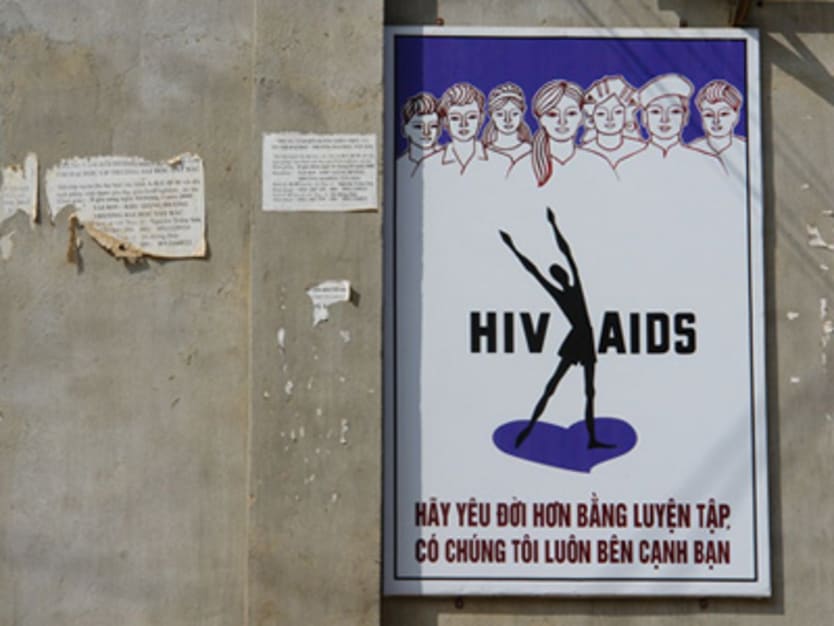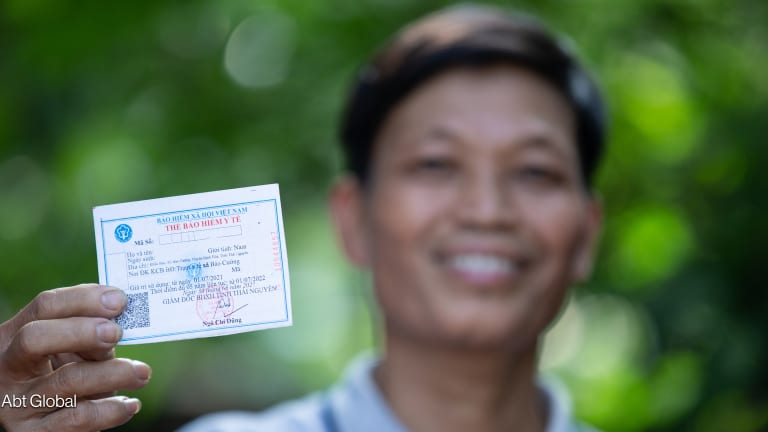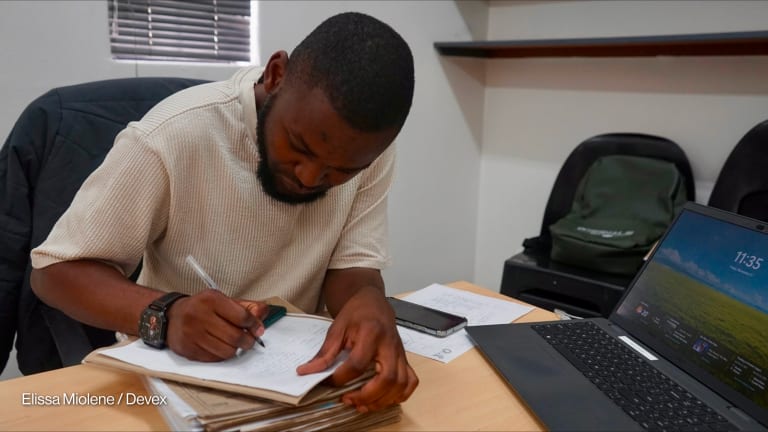
Vietnam, now considered a middle-income country, is facing a huge funding gap in its fight against HIV and AIDS in the coming years, as cash-strapped donors start to pull out their aid money.
With donor funds drying up, Vietnam has left with no choice but to take the lead, both donors and implementing partners told Devex.
This year alone, the funding shortfall for Vietnam’s HIV and AIDS programs is estimated at 32 billion Vietnamese Dong ($1.5 million), according to UNAIDS estimates. And if this trend remains unchanged, the government will have to find ways to fill the gap, estimated at more than 22.98 trillion Vietnamese Dong ($1.07 billion) from 2014 to 2020.
As Vietnam joins the fraternity of middle-income nations, the country also embraces a bond common to all of them: shifting support from their long-time donors who are either reducing their aid footprints or cutting altogether their bilateral ties.
“The fact that Vietnam declared to be a MIC is the main cause of these funding cuts,” a spokesperson from Catholic Relief Service Vietnam told Devex. “Vietnam is in the process of development and the country has a lot of policy and strategy to move the HIV and AIDS programs forward. However, funding is always an issue that makes these strategies to be difficult to be implemented.”
On the ground, implementing partners from civil society and nonprofit circles are forging new bonds with corporations, other big nonprofits and private foundations to secure future funding. Some are even relying on special assistance from their headquarters to continue their operations.
What donors say
United Kingdom announced it will end its six-year HIV and AIDS project in Vietnam by end of 2013 as part of its operational plan. This year, the Department for International Development committed and disbursed £6.2 million.
The decision to end United Kingdom’s development agreement with Vietnam was reached after the bilateral aid review was conducted in 2010, according to DfID sources. In the coming years, DfID is focused on helping 28 poorest countries where the agency felt the British tax money could go the furthest.
DfID is due to end its programs in Vietnam three years from now. In its 2013 operational plan for Vietnam, DfID said it “made the last payment of general budget support in March 2012 and will phase out the large MDG programs by 2013/14.”
Meanwhile, the Global Fund to Fight AIDS, Tuberculosis and Malaria is “not cutting funding to Vietnam,” its spokesperson told Devex. “Vietnam is now classified as a ‘lower-middle-income’ country. That means it is still eligible for funding, but probably not at the same proportion of available funding as before.”
Vietnam was awarded with a $125-million grant by the Global Fund for 2011-2015, and will continue to be eligible for future grants provided it can demonstrate 20 percent counterpart funding and improved government response.
“The income status is only one of many criteria used to determine resources that will be available to any given country,” the spokesperson explained. “It’s a change in strategy in how resources are available, not an automatic reduction only based on income status.”
The United States, for its part, is seeking to reduce funding for HIV/AIDS programs worldwide. Health advocates have recently criticized U.S. President Barack Obama for cutting about $200 million from global AIDS programs, including PEPFAR.
For fiscal 2014, Obama seeks to cut funding for global health programs in Vietnam by 20 percent, from $67 million in 2012 to $53 million for 2014.
Vietnam’s to-do list
But declining funding does not mean donors are abandoning Vietnam. As their funding is expected to dry up in the coming years, donors are now trying to help the Vietnam government to lead the fight against the global scourge.
Australia, for one, builds its programs around improving the capacity of the Vietnamese government.
“Australia also encourages the government of Vietnam to be in the lead in the fight against the epidemic,” a spokesperson from Australian Agency for International Development told Devex. “Our HIV/AIDS programs are therefore focused on capacity building for government health workers and mainstreaming HIV/AIDS service delivery activities into existing government run programs.”
Other donors like USAID, according to CRS Vietnam, are working towards building the capacity of local NGOs, “so that they can continue to carry out the support.” The CRS spokesperson said this capacity building is an effort to soften the blow of international donors moving away from the country.
Becoming a middle income country does not necessarily mean that Vietnam is getting richer, but rather that the country is doing better in funding its HIV and AIDS programs.
UNAIDS, for instance, lauded the passage of Vietnam’s HIV and AIDS prevention law last year, and funding rose precisely because of that.
With the withdrawal of massive donor support, Vietnam should tap other sources of funding and engage the private sector.
Ready or not?
But is Vietnam’s government — or its private sector — ready to start picking up the tab on the fight against HIV and AIDS?
The country is vulnerable to funding shocks, as $7 out of every $10 from donors goes to antiretroviral therapies and other prevention programs.
Based on UNAIDS data, investments from the public sector cannot keep pace with the rapid decline of foreign aid money. Foreign aid is estimated to be close to zero in 2019-2020, the U.N. agency predicts.
“Vietnam is still poor,” Huong Nguyen, finance manager and health economist for Medical Committee Netherlands-Vietnam told Devex. “I don’t think they can do it by themselves.”
Nguyen explained donors should base their funding decisions on the needs and prevalence of HIV, not mainly on income of countries.
Last year, the U.S. and Dutch governments ended funding for MCNV’s HIV and AIDS work. The organization tried to ask for assistance from other donors like AusAID, but failed to clinch funding. Nguyen noted that this is a result of stiff competition for dwindling resources for HIV and AIDS programs.
MCNV is currently getting by with small funding from a Dutch private donor and their headquarters.
Tapping Vietnam’s private sector may be difficult at this point, she pointed out.
“Just several private companies can be successful now [in funding HIV/AIDS programs],” said Nguyen. “In our organization, we have done fundraising activities but it’s rather difficult for them to contribute.”
With funding from donors drying up, MCNV had to let go some of its employees working on its HIV programs: “We don’t have a big team anymore … we cannot maintain a lot of staff but we have a lot of network and partners and a lot of activities.”
Read more development aid news online, and subscribe to The Development Newswire to receive top international development headlines from the world’s leading donors, news sources and opinion leaders — emailed to you FREE every business day.








